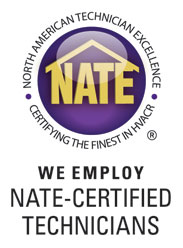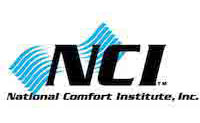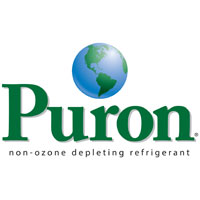Most homeowners are aware that sudden severe dips in outside temperature can be dangerous to plumbing and lead to pipes bursting. They may not be aware that they can also damage their home’s HVAC systems at the same time. Home air conditioning units may have humidifiers and other components whose pipes or machinery have broken or burst during the cold spell along with the pipes.
As extreme cold makes the pipes and the water within them contract, the molecules in the water move closer together, thus becoming denser. As they become denser, though, their Hydrogen bonds make them begin to align with one another and expansion begins again. It continues until freezing occurs. Eventually enough of the water freezes to form a blockage in a pipe. The blockage does not cause the break. The pressure that builds up downstream from the blockage between it and the closed faucet builds and builds until it results in a split that bursts the pipe. The same damage can occur to lines and parts inside an HVAC system.
It is vital that you have a complete A/C Maintenance inspection done on your system before turning it on for the summer to determine if there are any damaged parts or mechanical problems that need HVAC Repairs before using. If such damaged should go unnoticed, your system might break down when summer is at its hottest. Then you will pay much more for HVAC troubleshooting to determine the cause. Ideally, you should have your system checked twice a year, once before using your air conditioning in the summer and then have a Home Utility Maintenance check performed on your furnace or heat pump before cold weather begins. Wrapping your pipes with insulation will also help a lot.
Wrapping your pipes with insulation will also help prevent heat loss and broken pipes in the winter. Caulking basement and foundation walls to plug cold air openings or insulating the attic will all help keep warmth inside the house. During cold snaps, leave your faucet taps on to allow a trickle of water to run so the lines are open and pressure cannot build up. Leave sink cabinets open to allow heat inside to warm the pipes. Prevention will minimize the need for expensive repairs.













